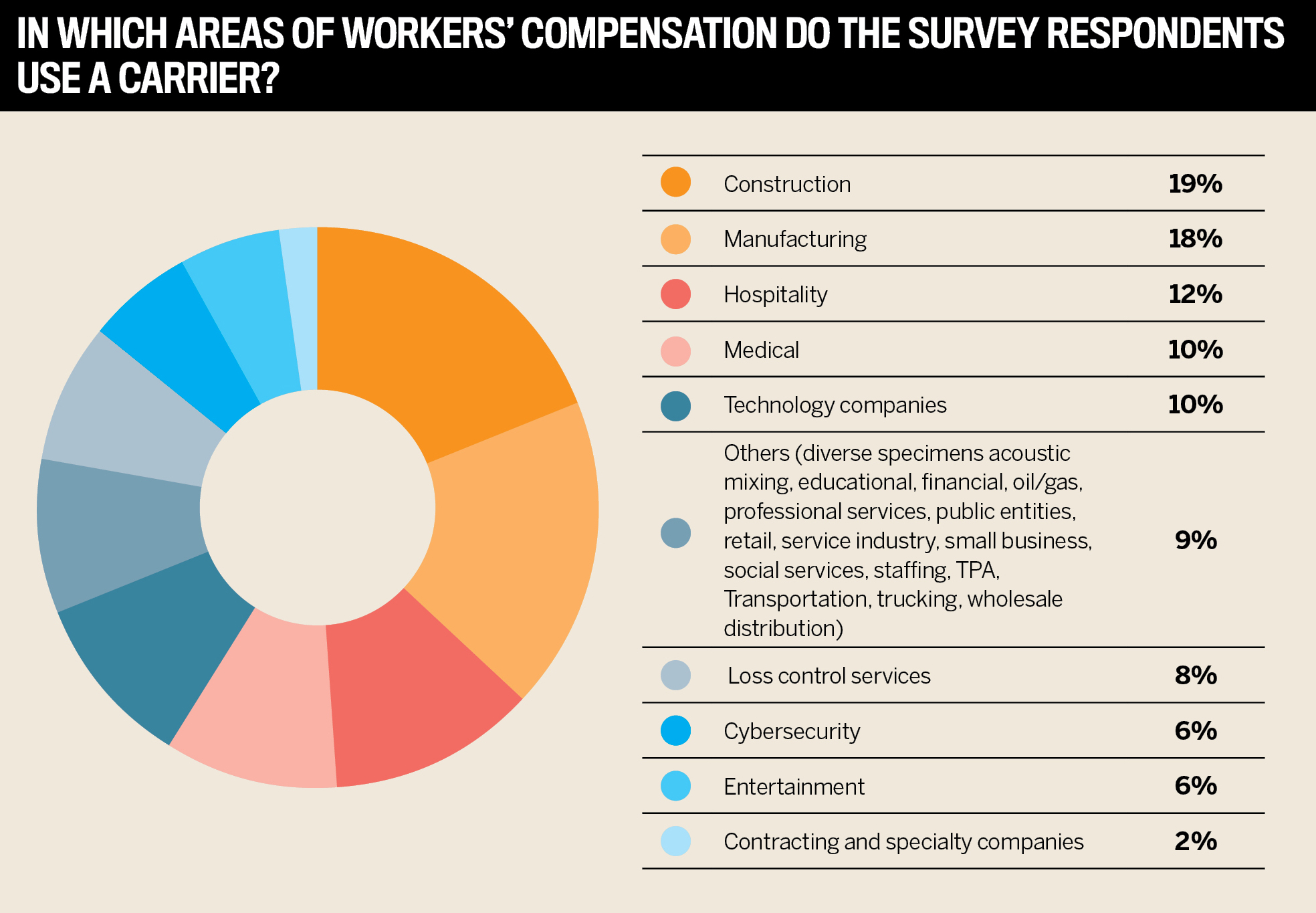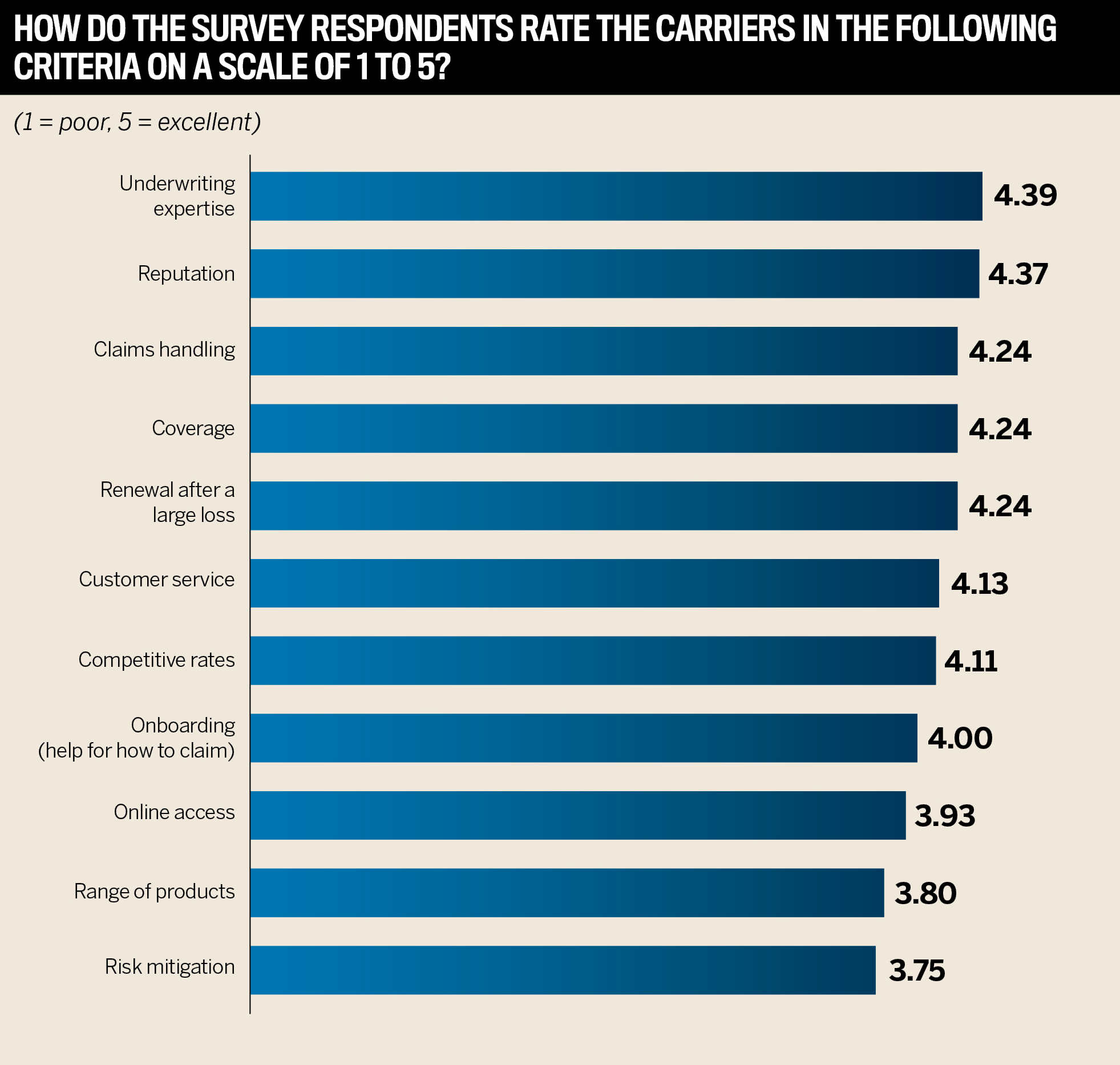Top Workers’ Compensation Insurance Companies in the USA

Jump to winners | Jump to methodology
On the frontline
Insurance Business celebrates the top workers’ compensation providers of 2024.
Industry expert Carol Murphy, executive vice president at HUB International, highlights what makes these firms stand out.
“Best-in-class major carriers have capabilities and jurisdictional expertise in all states. They are consistent, fair and responsive, and address claimants with empathy to support the client’s good reputation.
“They avoid giving clients any surprises. The very best have reduced turnover so more consistency of high-quality claims adjusters and invest in continuous improvements in technology and analytics.”
While there are a multitude of factors to consider in the sector, the bedrock for a provider is delivering for the customer injured in the line of work.
“As an advocate of the customer, the first priority is the customer’s happiness with the carrier’s service and underwriting approach to optimize total cost of risk,” explains Murphy. “After that, it is making sure the program structure and costs are competitive and reasonable and providing the best tools and analytics to support the client’s good reputation and improvements in total cost of risk. Any of these factors could go awry, prompting a desire to change carriers, but the most important factor is the customer’s level of satisfaction, especially with claims service.”
AmTrust Financial Services
The New York-based firm has been in operation for 26 years and is a specialist in the workers’ comp sector.
AmTrust’s abilities are unquestioned as this year’s recognition from IB marks the firm’s third successive annual 5-Star Workers’ Comp award.
With over 400,000 active policies, AmTrust devotes a lot of attention to smaller business and has become an unrivalled expert, making it challenging for competitors to match its offering,
Matt Zender, senior vice president, workers’ compensation strategy, says, “We started writing small workers’ compensation and that business is administratively difficult. If you’re having to touch those with an email and a regularity, it can become very difficult to make the economics work, but because we started writing small comp from the beginning, everything about our company was built to make sure that it was going to be able to support that, from our systems, to our people, to the way that we interact with our agents and our appetite that. Basically, we have a moat built around us.”

“We are a unique blend of being the third largest writer of workers’ compensation, but also have a nimbleness where we’re entrepreneurial enough that when anybody in the organization brings a suggestion to the table, we have the flexibility to execute against those suggestions”
Matt ZenderAmTrust Financial Services
There are five guiding principles that Zender attributes to the bedrock of the firm’s performance:
consistency
integrity
experience
reliability
innovation
He adds, “Our appetite and approach has been consistent year over year, which allows our agents or partners to know what to expect from us. From an integrity perspective, our underwriters are given authority that allows them to be a meaningful partner for our agents and we stand behind the decisions they make.”
AmTrust has established itself as a major player in the workers’ comp sector by refining its business to maintain that standing.
This has been done via investment and important strategic decisions.
“We have made massive strides in our application programming interface (API) technology space, which allows us to interact with our agents digitally, and much more quickly than ever was possible before. Our interface technology allows our agents to transact with us all the way through quote, bind and policy issuance, which is unique to us,” comments Zender.
“For smaller policyholders, when our agents are working on that business, they need to work very quickly. If it takes too long, it’s simply not economical. So, we have to be able to support that through a transaction that’s going to work very quickly and our systems allow us to execute that.”

A recent case highlights how AmTrust’s decisions on tech have enabled it to become an even stronger provider.
One of its larger agents had an issue involving 30,000 policies with a prior carrier, as policies were taking two to four weeks to get issued.
“We were able to apply some technology solutions to it and we are now issuing those policies in less than four hours, and oftentimes instantaneously,” says Zender.
This is the archetypal scenario that is driving the firm forward and the reason why it is a serial award winner.
“It’s invigorating when you’re able to see not only that it was a solution that benefited AmTrust; it benefited our agent partner, but most importantly, it benefited the people that needed access to care. In some cases, waiting two to four weeks could have mattered,” adds Zender. “Now we’ve been able to remove that issue entirely. When you get wins like that, it just makes you want to find the next opportunity. It feeds the hunger, if you will, and makes you even hungrier.”
Even with efficient internal operations and vast sector experience, a fundamental reason AmTrust maintains its success is understanding policyholders.
Due to its focus on small businesses, it deals with a broad range of industries so it can capture patterns.
Zender explains, “They’ve certainly changed in terms of payment options and integrating a payroll provider into the stream, so they can use their provider to remit their premium to us. For the most part, the small policyholders wear so many different hats and the workers’ compensation purchase is one they know they need to make and they would hope that they don’t have to reference that at all throughout the year and when they do, we’re there to support them. But for the most part, their needs have changed around the edges, they haven’t changed at the core.”

However, these edges are vital and there can be trends specific to particular sectors that AmTrust must be aware of. They do this by using their data and analytics.
Zender says, “We would start at the broadest possible view, and then narrow ourselves in to the point where maybe we’re looking at, for example, our retention and how many policies are renewing with us, either on a premium basis or on a policy basis, and then you can look at maybe the number of midterm cancellations that you would have, and then you might look by class code. Then, if you see that you’re having changes within that you might ask yourselves, was it due to any changes within the economic cycle. So, you start broad and narrow your way in, and that allows you to gain the insights.”
And he highlights how the firm’s specialism allows it to become more informed annually so it can deliver even better service.
“It comes back to that moat comment – when you have the data, you have the ability to gain the insights. It becomes a bit of ‘have and have nots’ because we’re able to use our data to gain the insights and look into what it means for us. Whereas if you don’t have that business, you don’t have that ability.”
That sophisticated approach is grounded in the ultimate point of the policies and the direct impact they have on injured workers.
“If you lose sight of that, you lose sight of everything. It’s what we’re in business for, to provide support and assistance when people do get injured on the job. It’s why we’re here.”
AIG
Applied Underwriters
Auto-Owners Insurance
BerkleyNet
Employers
Encova
ICW Group
Key Risk
Liberty Mutual
Pie Insurance
QBE
The Hartford
Travelers
Zurich Insurance





